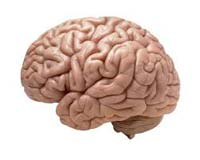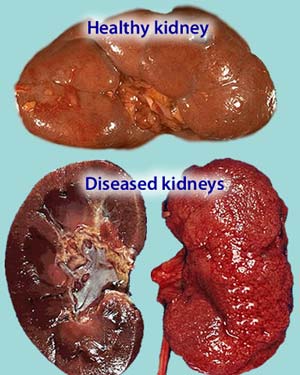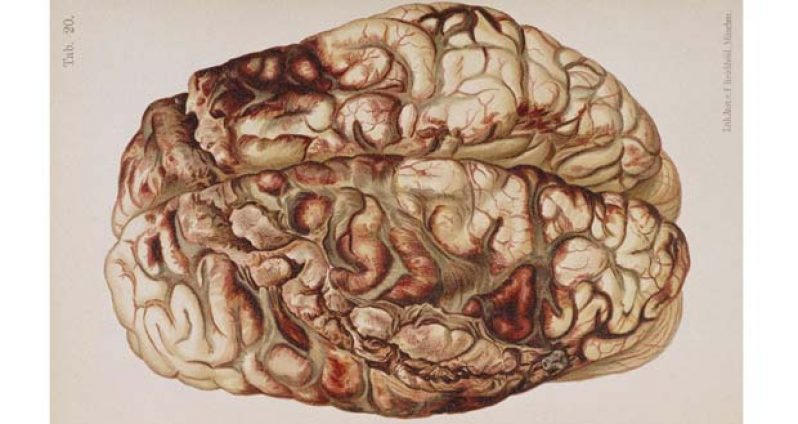Brain Damaging Habits That You Must Know
No Breakfast
People who do not take breakfast are going to have a lower blood sugar level.
This leads to an insufficient supply of nutrients to the brain causing brain degeneration.
Overeating
It causes hardening of the brain arteries, leading to a decrease in mental power.

Smoking
It causes multiple brain shrinkage and may lead to Alzheimer disease.
High Sugar consumption
Too much sugar will interrupt the absorption of proteins and nutrients causing malnutrition and may interfere with brain development.
Air Pollution
The brain is the largest oxygen consumer in our body. Inhaling polluted air decreases the supply of oxygen to the brain, bringing about a decrease in brain efficiency.
Sleep Deprivation
Sleep allows our brain to rest. Long term deprivation from sleep will accelerate the death of brain cells.
Head covered while sleeping
Sleeping with the head covered increases the concentration of carbon dioxide and decrease concentration of oxygen that may lead to brain damaging effects.
Working your brain during illness
Working hard or studying with sickness may lead to a decrease in effectiveness of the brain as well as damage the brain.
Lacking in stimulating thoughts
Thinking is the best way to train our brain, lacking in brain stimulation thoughts may cause brain shrinkage.
Talking Rarely
Intellectual conversations will promote the efficiency of the brain.
Symptoms of Kidney Disease That You Must Know
Most people are not aware of the fact that kidney diseases can be silent killers. They may not show any symptoms for a long time till the situation becomes critical. It is important to recognise the symptoms of kidney diseases to catch them early. Here is a list of twelve such symptoms you should look out for:
Changes in your urinary function: The first symptom of kidney disease is changes the amount, frequency of your urination. There may be an increase or decrease in amount and/or its frequency, especially at night. It may also look darker coloured. You may feel the urge to urinate but are unable to do so when you get to the restroom.
Difficulty or pain during voiding: Sometimes you have difficulty or feel pressure or pain while voiding. Urinary tract infections may cause symptoms such as pain or burning during urination. When these infections spread to the kidneys they may cause fever and pain in your back.
Blood in the urine: This is a symptom of kidney disease which is a definite cause for concern. There may be other reasons, but it is advisable to visit your doctor in case you notice it.
Swelling: Kidneys remove wastes and extra fluid from the body. When they are unable to do so, this extra fluid will build up causing swelling in your hands, feet, ankles and/or your face.
Extreme fatigue and generalized weakness: Your kidneys produce a hormone called erythropoietin which helps make red blood cells that carry oxygen. In kidney disease lower levels of erythropoietin causes decreased red blood cells in your body resulting in anaemia. There is decreased oxygen delivery to cells causing generalised weakness and extreme fatigue.
Dizziness & Inability to concentrate: Anaemia associated with kidney disease also depletes your brain of oxygen which may cause dizziness, trouble with concentration, etc.
Feeling cold all the time: If you have kidney disease you may feel cold even when in a warm surrounding due to anaemia. Pyelonephritis (kidney infection) may cause fever with chills.
Skin rashes and itching: Kidney failure causes waste build-up in your blood. This can causes severe itching and skin rashes.
Ammonia breath and metallic taste: Kidney failure increases level of urea in the blood (uraemia). This urea is broken down to ammonia in the saliva causing urine-like bad breath called ammonia breath. It is also usually associated with an unpleasant metallic taste (dysgeusia) in the mouth.
Nausea and vomiting: The build-up of waste products in your blood in kidney disease can also cause nausea and vomiting.
Shortness of breath: Kidney disease causes fluid to build up in the lungs. And also, anaemia, a common side-effect of kidney disease, starves your body of oxygen. You may have trouble catching your breath due to these factors.
Pain in the back or sides: Some cases of kidney disease may cause pain. You may feel a severe cramping pain that spreads from the lower back into the groin if there is a kidney stone in the ureter. Pain may also be related to polycystic kidney disease, an inherited kidney disorder, which causes many fluid-filled cysts in the kidneys. Interstitial cystitis, a chronic inflammation of the bladder wall, causes chronic pain and discomfort.
It is important to identify kidney disease early because in most cases the damage in the kidneys can’t be undone. To reduce your chances of getting severe kidney problems, see your doctor when you observe one or more of the above symptoms. If caught early, kidney disease can be treated very effectively. (Information gathered and extracted from healthdigezt.com)
Join us again for next week edition of the Pepperpot’s weekly Health Digest where we will be focusing on Natural Remedies to Reduce Alcohol Cravings and benefits of drinking Lemon/Lime swank.



.jpg)








